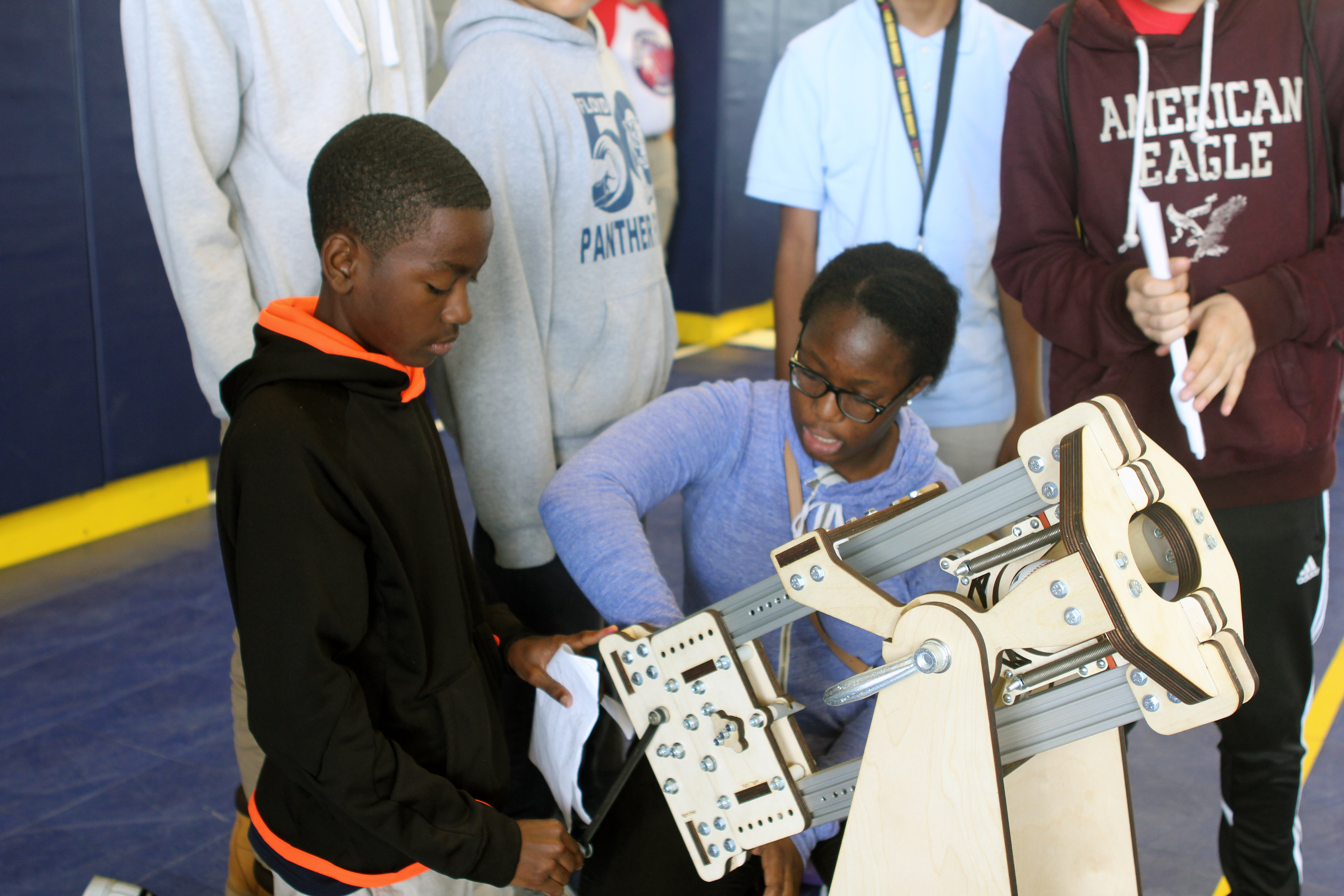
More than 100 Metro Atlanta students, teachers, parents and volunteers gathered at the Georgia Tech Campus Recreation Center earlier this month for the finale of a competition that combines STEM education and baseball.
Middle school student teams from two Atlanta Public Schools and four Cobb County Schools used their science and engineering skills to build baseball launchers during the 2016-17 school year. Then on May 1st, teams brought their launchers to the CRC to test them for accuracy. Each team received a 10-minute practice session and three attempts to launch a baseball into a blue bucket. During the oral presentation portion of the competition, a panel of judges evaluated students on their STEM literacy skills.
“Too many times children and adults are very smart, but don’t know how to explain scientific terms and concepts in a concise, coherent way,” said Mindy DiSalvo, GTRI senior research faculty and competition organizer.
Physicists in GTRI’s Electro-Optical Systems Laboratory spent two months designing the launcher, and worked with Machine Services to develop materials and parts for the launcher kits. The device features altitude and elevation adjustments so “students can use it like a piece of artillery and try to hit the target by making multiple adjustments,” said Michael Knotts, GTRI principal research scientist and co-designer of the launcher.
“This is not a trivial kit to assemble,” he continued. “There’s some very sophisticated parts. We wanted to stretch students a little bit, and they all rose to the challenge.”
The competition also included supporting activities developed by GTRI and the Center for Education Integrating Science, Mathematics, and Computing (CEISMC) to extend learning beyond building the device. Teachers and mentors appreciated the hands-on nature of the competition.
“It’s much more engaging for students. Students need tactile, kinesthetic types of projects. And students are more drawn to that as opposed to completing book work,” said Charles Carr, 6th grade math teacher at Brown Middle School.
After a tough deliberation, judges chose Cobb County’s Cooper Middle School and the team’s Star Wars-themed launcher as the winners of the competition. Atlanta Neighborhood Charter School, Brown Middle School, Floyd Middle School, Griffin Middle School and Hightower Trail Middle School also participated.
“STEM is fun,” said David Thompson, Cooper Middle School student. “It’s a more advanced, rigorous environment, which I think will challenge my intellectual ability to its fullest capacity. And that’s what I really want in life – to be challenged.”
The Braves invited the Cooper team to use their launcher to throw out the first pitch at their May 5th game at SunTrust Park.
“I hope they learned about teamwork, how to be leaders within their team and communicate better,” said Celeste Mercer, group sales account executive, Atlanta Braves. “That’s important for the Atlanta Braves as a team on the field, so we hope it translates to what the students have been doing for the past several months.”
The Atlanta Braves are the first professional sports team to enter into a research partnership with Georgia Tech. IPaT, the Atlanta Braves, STEM@GTRI and CEISMC sponsored the Braves STEM Competition.





